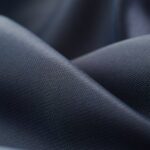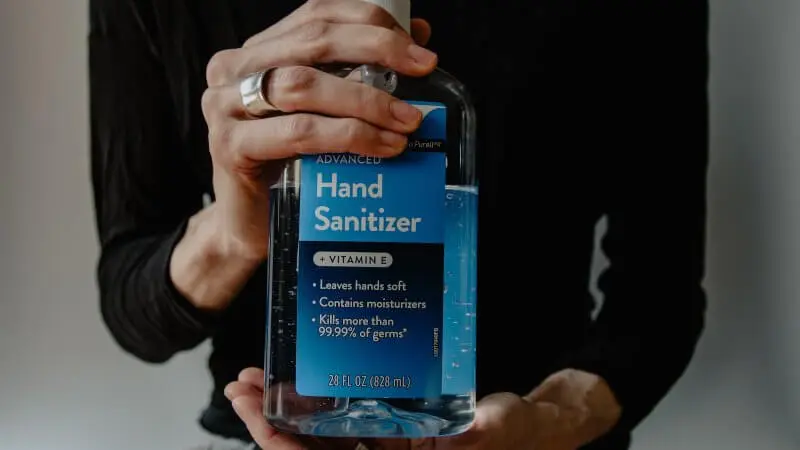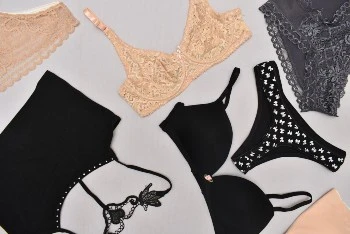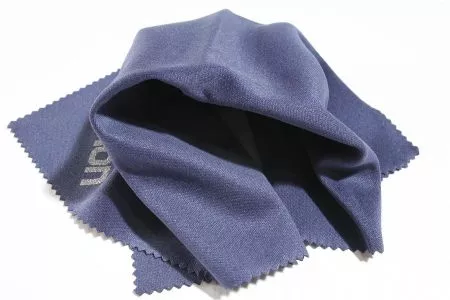When you go shopping for clothes, one of the questions that come into your mind as you decide the clothing to buy is whether the fabric used is perfect. For example, before purchasing a bra, you might ask whether a nylon brand is good. But is nylon good for skin?
100% nylon is not the best for socks, bras, and bathing suits. However, when nylon is blended with other breathable fabrics, it is the ideal fabric for most clothing items.
In this article, we discuss the suitability of nylon fabric in different fabrics. To begin with, the article first explains whether nylon is good for the skin. After that, we look at whether nylon is suitable for socks, bras, and bathing suits.
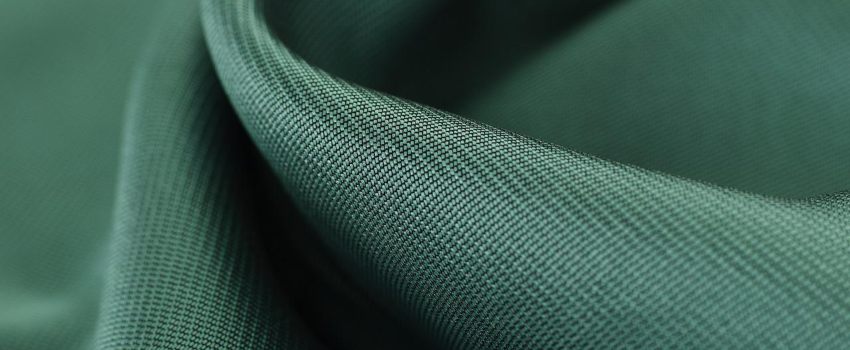
What Is Nylon?
Nylon is a synthetic fabric invented in the 1930s by a company known as DuPont. The company developed nylon as an artificial replacement for natural silk after the production of natural silk was limited due to the scarcity of silkworms needed to produce silk.
A series of nylon fibers have to be spun together to make nylon fabrics. To make a nylon blend, a series of nylon fibers have to be spun together with a series of fibers that the nylon fibers are being blended with.
As a synthetic fabric, nylon is not breathable. However, when spinning the nylon fibers to make nylon fabrics, the fibers can be loosely spun to leave some tiny holes between the fibers and make the fabric breathable.
However, it should be noted that even when the fibers in 100% nylon fabrics are loosely woven, the breathability of the nylon fibers will be minimal and cannot be compared with the breathability of a nylon blend with another breathable fabric.
Advantages and Disadvantages Of Nylon
The advantages of a specific fabric entail the fabric’s particular properties that make the fabric to be used in different products. On the other hand, material disadvantages comprise a fabric’s properties that limit its use in various products.
Advantages Of Nylon
Versatile
As a fabric whose fibers are made from plastic, nylon is highly versatile. Indeed, the fabric can be used to make different products. Some of the products made from nylon fibers are; parachutes, swimwear, windbreakers, ropes, umbrellas, and car tires.
Resists abrasion
Abrasion entails rubbing or friction of fibers against each other or other materials. Plastics from which nylon fibers are made have exceptionally high abrasion resistance.
Thus, due to the impressive abrasion resistance of nylon, nylon fabric can stand up to heavy wear, which most fibers cannot. You can therefore expect your nylon fabric to last a long time.
Easy To Wash
When washing natural fabrics such as cotton, silk, wool, and bamboo, among others, one must be careful since washing the materials in the wrong setting could ruin the fabrics.
However, nylon and other artificial fabrics such as polyester are easy to wash. Indeed, these fabrics can be washed with cold, warm, or hot water settings and will not be ruined.
Moreover, the poor absorbency in nylon implies that dirt and stains are not quickly absorbed inside the fibers of nylon fabric. Thus, it is easy to remove stains and dirt in nylon since the stains are on the nylon’s outer surface most of the time.
Water-Resistant
Nylon is water-resistant. When exposed to precipitation or moisture, nylon will hardly allow the water to pass through the fibers to get to the fabric’s inner surface.
Due to nylon’s water resistance property, the fabric is used in raincoats, swimming costumes, windbreakers, skiing jackets, and other outdoor gear.
Resist Wrinkles and Shrinking
Due to the high resilience of nylon fibers, the fabric does not wrinkle or shrink easily. Nylon fabrics can be washed at very high temperatures and would not shrink.
Low Moisture Absorbency
Even if nylon fibers absorb moisture, their absorbency levels are very low compared to other natural fibers such as cotton. Since absorbency in fabrics is essential, nylon is usually blended with cotton or other absorbent materials to create an absorbent nylon blend.
Easy To Dye
Unlike other synthetic fibers, nylon is easy to dye. Nylon fibers’ unique chemistry implies that nylon fabric can be easily dyed using dyes commonly used to dye other materials.
Stain Resistant
During nylon manufacturing, the fibers are treated with an acid dye blocker that improves the fabric’s resistance to stains. As a result, nylon does not stain easily.
Stretchy
100% nylon fibers can stretch 15 to 30% before they start to break. Thus, if you have a nylon dress, the dress will stretch up to 30% and ensure that the dress perfectly fits you.
Disadvantages of Nylon
Poor Resistant To Sunlight
One of the main weaknesses of nylon is that when expensed to the sun for a long time, the nylon fabric is damaged by the sunlight. When you notice that your nylon garment has fading colors on the side exposed to the sun, that is an indicator that your nylon fabric has been ruined by the sun.
Indeed, in the past, car seat belts were made from nylon since the fibers are very strong. However, after some time, car manufacturers realized that nylon seat belts were being ruined by the sun. To fix the issue, car manufacturers started using polyester seat belts.
Is Not Waterproof
Even if nylon is water-resistant, nylon fibers are not waterproof. Indeed, nylon will only resist water under certain conditions.
For example, if you leave a nylon bag outside and it rains, heaving for a long time, the nylon fibers will eventually let some water pass through the fabric. Therefore, even if nylon garments can resist water, you should always be cautious when wearing nylon dressing, and it starts to rain since nylon is not 100% waterproof.
Poor Absorbency
Due to the structure of nylon fibers, nylon had poor absorbency. Thus, the moisture will stay on the nylon surface and move around rather than allow water or moisture to pass through the fibers. Therefore, if you sweat when wearing, the sweat can quickly accumulate on your skin and make you uncomfortable.
Pilling
A fabric that has poor absorbency property tends to pill. Thus, even if nylon is good in abrasion resistance, it pills easily. The presence of nylon in Lululemon, Luon fabric used to make the leggings is one of the reasons why Lululemon leggings pill.
Is Nylon Good For Socks
Since we have looked at the pros and cons of nylon, it is ideal to look at the properties of a perfect fabric for socks to determine whether nylon is perfect for socks.
Here are the qualities that you should be looking for in your socks
Warmth
Socks should be able to keep you warm. Indeed, when the socks insulate, ensure that heat does not leave your body through your feet. Moreover, feet regulate body temperature since there is good blood circulation when they are warm, which helps release more heat into the body.
Nylon is not a warm fabric. Indeed, even if nylon can keep you warm, it can’t keep you warm enough in cold weather. Thus, socks made from other warmer fabrics such as merino wool are better at keeping you warm than socks made from nylon.
Stretch
Socks need to have some stretch on them to fit perfectly and feel comfortable. Nylon has a 15 – 30% natural stretch. Thus, for those who are looking for stretchy socks, they have to consider nylon socks.
Moisture-Wicking
Socks need to be moisture-wicking to facilitate evaporation by permitting the moisture to travel along with the fabric instead of being absorbed. Thus, moisture-wicking socks will help prevent the growth of bacteria and fungi. Moreover, the socks will also avert the risk of sores and blisters.
Nylon fibers are good at wicking moisture. For that reason, many socks manufacturers make nylon or polyester socks due to the impressive sweat-wicking abilities of the nylon and polyester fabrics.
Durability
Socks need to be durable since they need to be worn for a few months before they are worn out. Nylon is a durable fabric, and as such, it makes a good fabric for socks.
Comfort
The socks have to be comfortable for the feet. Indeed, one can have a long day when the socks are uncomfortable. Nylon has a soft feel that is similar to the feeling of silk. Thus, nylon socks would be comfortable for the skin.
100% nylon socks are not the best due to the poor breathability of nylon. However, socks made from nylon blends are the best since the nylon blend socks are breathable, durable, moisture-wicking, lightweight, retains shape, comfortable, and affordable.
Is Nylon Good For Bra
The material of the bra is a critical factor in determining its comfortability. Moreover, for a bra to be comfortable, it has to be of good size and good style. Therefore, it is essential that when buying a bra, the comfortability of the bra is taken into consideration.
Nylon is suitable for a bra since it is durable, retains its shape, dries quickly, and is comfortable to the skin. However, due to nylon’s poor breathability, the nylon cotton blend bra is the best since the bra has all the ideal features of nylon and cotton and is also breathable.
Is Nylon A Good Bathing Suit Material
A good bathing suit material needs to be durable, lightweight, resistant to chemicals, resistant to UV, and comfortable to the skin.
Nylon is a good bathing suit material but not the best. Indeed, even though nylon is lightweight, durable, moisture-wicking, chemical resistant, and comfortable to the skin, the fabric fades quickly, pills over time, and is not entirely resistant to UV.
The best material for a bathing suit is a polyester/elastane blend. Polyester is colorfast and resistant to chlorine and other chemicals used in the pools. On the other hand, elastane is super stretchy and thus ensures that the swimsuit perfectly fits.
Conclusions
100% nylon has different weaknesses that make the fabric unsuitable for different garments. Specifically, the poor breathability of nylon is its undoing. However, when blended with other fabrics, nylon is excellent for different clothing items.

